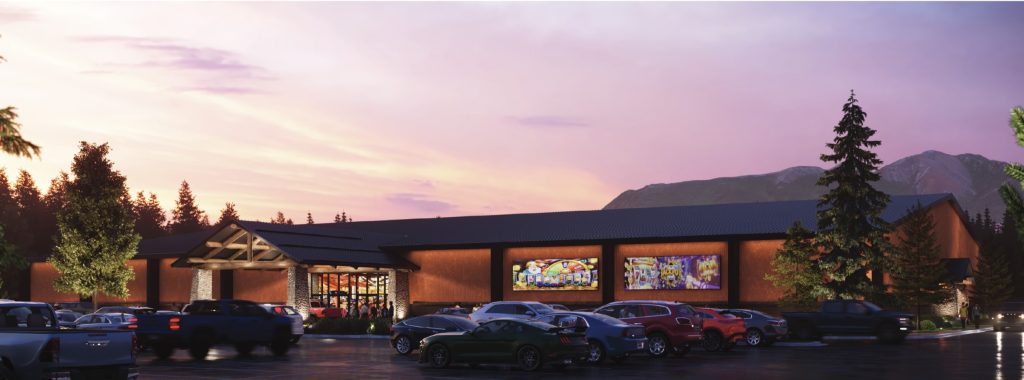Podcast: Play in new window | Download | Embed
In Alaska, a group of homeowners have filed a lawsuit over the Eklutna Tribe’s planned casino project.
The tribe sees gaming as an opportunity to create jobs and boost the economy.
But, as Rhonda McBride from our flagship station KNBA reports, the lawsuit names the tribe and the head of the National Indian Gaming Commission.
In September, the Eklutna Tribe cleared wooded land in the Birchwood area for the gaming hall – a few miles off an exit from a highway on the outskirts of Anchorage.
Debbie Ossiander lives about a mile from the site.
“There’s a lot of horses and dog mushing and that kind of activity out here.”
Ossiander is-co-chair of the Birchwood Community Council and supports the lawsuit.
She says the whole community is worried the project will destroy the rural character of the area.
“People are fearful of what kind of a traffic impact that would engender. It would be a draw certainly.”
Ossiander says there are some other big unknowns, like the impact of drainage from the casino’s parking lot into nearby Peter’s Creek, a salmon spawning stream.
The lawsuit was filed on behalf of eight people who live near the site for the casino.
They are represented by attorney Don Mitchell, a longtime opponent of tribes in Alaska.
Mitchell would not comment for this story, but his lawsuit questions Eklutna’s tribal status as well as the existence of tribes in Alaska.
Aaron Leggett, the president of the Native Village of Eklutna, said in a statement that the litigation is disappointing.
He said Mitchell’s argument that there are no tribes in Alaska has repeatedly been rejected by the courts.
As for the complaints from neighboring landowners about the impact on the Birchwood community, Leggett said the public will have a chance to comment on the project, after a federal environmental review of it is completed.
The land is on a Native allotment, that under a recent decision from the Interior Department’s Solicitor’s Office, became eligible for a gaming permit.
The Tribe says it will create jobs and be a boost to the local economy.

Elk in Colorado. (Photo: Vince O’Sullivan via Flickr)
A study shows that wildlife migration routes in the West will likely shift because of climate change.
That’s why researchers worked with biologists from the Southern Ute Tribe to find out how to tackle the problem.
The Mountain West News Bureau’s Kaleb Roedel reports.
Researchers used GPS data from dozens of elk collared by the Southern Ute Tribe in southwestern Colorado.
They analyzed their current migration patterns – and projected how they will look in 2050 as temperatures rise and precipitation declines.
They also considered continued growth and development and the traffic that comes along with it.
They found elk could be more spread out in the winters as snowpacks shrink. And in the summers, herds could be more compacted as their range is cut by about half.
That means new wildlife crossings – like bridges and tunnels – will be needed, says Caitlin Littlefield.
She’s with Conservation Science Partners and the study’s lead author.
“Wildlife crossings can enable continued access to new or expanding ranges, or continued access to resources like, say, forage that’s shifting in time and space.”
Littlefield says the study shows state and federal agencies the need to invest in wildlife crossings that consider the climate’s impact on animal movements.

(Photo: Ken Lund / Flickr)
The Pueblos of Jemez and Acoma in New Mexico, and the Bureau of Land Management recently renewed co-stewardship agreements, to protect traditional, religious, and cultural interests of the Pueblos on federal lands.
Tribal and federal officials in a statement said the agreements are a way to further collaborations and working relationships, and ensure sustainable management of public lands.
Get National Native News delivered to your inbox daily. Sign up for our daily newsletter today.



